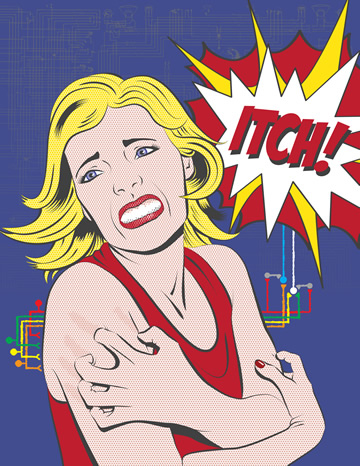- Home
- Medical news & Guidelines
- Anesthesiology
- Cardiology and CTVS
- Critical Care
- Dentistry
- Dermatology
- Diabetes and Endocrinology
- ENT
- Gastroenterology
- Medicine
- Nephrology
- Neurology
- Obstretics-Gynaecology
- Oncology
- Ophthalmology
- Orthopaedics
- Pediatrics-Neonatology
- Psychiatry
- Pulmonology
- Radiology
- Surgery
- Urology
- Laboratory Medicine
- Diet
- Nursing
- Paramedical
- Physiotherapy
- Health news
- Fact Check
- Bone Health Fact Check
- Brain Health Fact Check
- Cancer Related Fact Check
- Child Care Fact Check
- Dental and oral health fact check
- Diabetes and metabolic health fact check
- Diet and Nutrition Fact Check
- Eye and ENT Care Fact Check
- Fitness fact check
- Gut health fact check
- Heart health fact check
- Kidney health fact check
- Medical education fact check
- Men's health fact check
- Respiratory fact check
- Skin and hair care fact check
- Vaccine and Immunization fact check
- Women's health fact check
- AYUSH
- State News
- Andaman and Nicobar Islands
- Andhra Pradesh
- Arunachal Pradesh
- Assam
- Bihar
- Chandigarh
- Chattisgarh
- Dadra and Nagar Haveli
- Daman and Diu
- Delhi
- Goa
- Gujarat
- Haryana
- Himachal Pradesh
- Jammu & Kashmir
- Jharkhand
- Karnataka
- Kerala
- Ladakh
- Lakshadweep
- Madhya Pradesh
- Maharashtra
- Manipur
- Meghalaya
- Mizoram
- Nagaland
- Odisha
- Puducherry
- Punjab
- Rajasthan
- Sikkim
- Tamil Nadu
- Telangana
- Tripura
- Uttar Pradesh
- Uttrakhand
- West Bengal
- Medical Education
- Industry
Scientist identify a class of compounds to stop chronic itch

Scientists from the Florida campus of The Scripps Research Institute (TSRI) in a recent study published claim to have identified and described a class of compounds which has the potential to stop chronic itch.
What makes this development more specific is that the new set of compounds does not have the adverse side affects normally associated with medicating the condition. This new drug will suppress the itch and still will not induce any kind of sedation, as stated in the study.
The treatment is targeted at providing relief to people who suffer from the condition called "chronic intractable itch," where that itchy sensation never goes away—a difficult-to-treat condition closely associated with dialysis and renal failure.
"Our lab has been working on compounds that preserve the good properties of opioids and eliminate many of the side effects," said TSRI Professor Laura Bohn. "The new paper describes how we have refined an aspect of signaling underlying how the drugs work at the receptor so they still suppress itch and do not induce sedation. Developing compounds that activate the receptors in this way may serve as a means to improve their therapeutic potential."
The study, which was published recently in the journal Neuropharmacology, used a compound called isoquinolinone 2.1 to target the kappa opioid receptor, which is widely expressed in the central nervous system and serves to moderate pain perception and stress responses.
The compound was effective in stopping irritant-induced itch, without causing sedation, in mouse models of the condition.
Bohn noted isoquinolinone 2.1 is one example of a new class of "biased" kappa agonists that avoid many central nervous system side effects by preferentially activating a G protein-mediated signaling cascade without involving another system based on β-arrestin protein interactions.
What makes this development more specific is that the new set of compounds does not have the adverse side affects normally associated with medicating the condition. This new drug will suppress the itch and still will not induce any kind of sedation, as stated in the study.
The treatment is targeted at providing relief to people who suffer from the condition called "chronic intractable itch," where that itchy sensation never goes away—a difficult-to-treat condition closely associated with dialysis and renal failure.
"Our lab has been working on compounds that preserve the good properties of opioids and eliminate many of the side effects," said TSRI Professor Laura Bohn. "The new paper describes how we have refined an aspect of signaling underlying how the drugs work at the receptor so they still suppress itch and do not induce sedation. Developing compounds that activate the receptors in this way may serve as a means to improve their therapeutic potential."
The study, which was published recently in the journal Neuropharmacology, used a compound called isoquinolinone 2.1 to target the kappa opioid receptor, which is widely expressed in the central nervous system and serves to moderate pain perception and stress responses.
The compound was effective in stopping irritant-induced itch, without causing sedation, in mouse models of the condition.
Bohn noted isoquinolinone 2.1 is one example of a new class of "biased" kappa agonists that avoid many central nervous system side effects by preferentially activating a G protein-mediated signaling cascade without involving another system based on β-arrestin protein interactions.
chronic itchclass of compoundsjournal NeuropharmacologyProfessor Laura BohnThe Scripps Research Institute (TSRI)
Next Story


